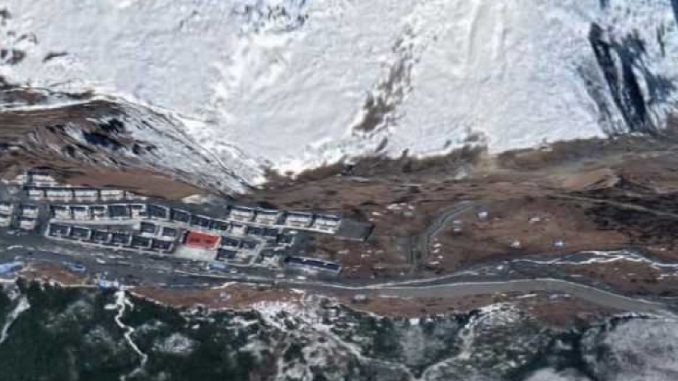
China announced the renaming of 11 places in India’s Arunachal Pradesh state, which it claims as part of its territory and calls “Zangnan, the southern part of Tibet.”
This is the third set of names released by China’s Ministry of Civil Affairs in the past five years, following the first batch of six names in 2017 and the second batch of 15 names in 2021.
The names were released on Sunday in Chinese, Tibetan, and pinyin characters, along with precise coordinates and categories of places, such as land areas, residential areas, mountain peaks, and rivers. The move is seen as a reiteration of China’s claim over Arunachal Pradesh, which it considers a disputed area and opposes any official visits by Indian leaders or foreign dignitaries.
India rejects China’s move
India has rejected China’s move to rename places in Arunachal Pradesh, saying that it does not alter the reality that the state is an integral part of India. India has also asserted that assigning “invented” names to places in Arunachal Pradesh is not the first time China has attempted such a renaming exercise and that it has no legal basis or validity.
China has reportedly renamed 11 places in our Arunachal Pradesh!
As if the sacrifices of our jawans in Galwan, surrendering our land, letting them establish village in Arunachal wasn't enough – GOI now wants us to be a mute spectator to China constantly bullying India on LAC.
— T S Singhdeo (@TS_SinghDeo) April 4, 2023
India’s External Affairs Ministry spokesperson Arindam Bagchi said in December 2021, “Arunachal Pradesh has always been, and will always be an integral part of India. Assigning invented names to places in Arunachal Pradesh does not alter this fact.”
Background and implications
The latest renaming practice by China comes amid strained relations between the two countries over the border standoff in eastern Ladakh since May 2020. The two sides have held several military and diplomatic talks to resolve the issue but have not yet achieved a complete disengagement or de-escalation.
China’s renaming of places in Arunachal Pradesh also coincides with some recent developments that may have irked Beijing, such as India’s hosting of a G20 meeting in Arunachal Pradesh that China chose to skip, and the visit of the Dalai Lama to the state in 2017.
China considers the Dalai Lama a “splittist” who seeks to separate Tibet from China and opposes any contact between him and foreign leaders or governments.
China’s renaming of places in Arunachal Pradesh may be seen as a way of asserting its sovereignty and historical rights over the region and signaling India and the international community that it does not recognize India’s jurisdiction or claims over the state. However, it may backfire by provoking a strong reaction from India and further complicating the border dispute and bilateral ties.








Leave a Reply